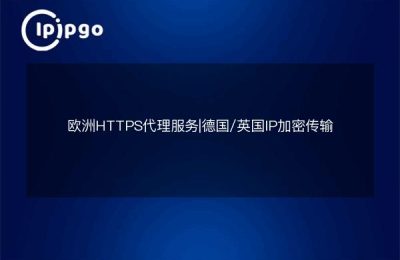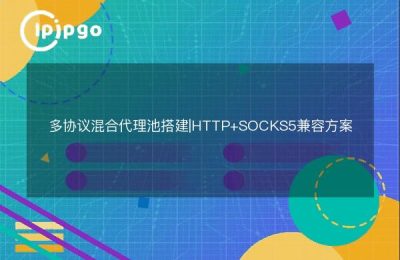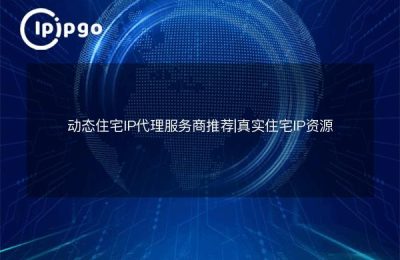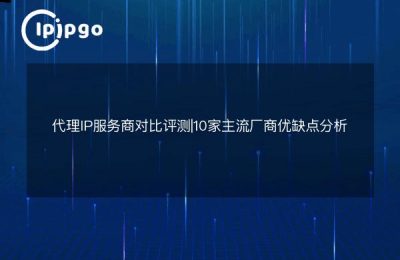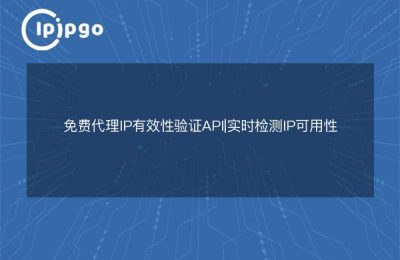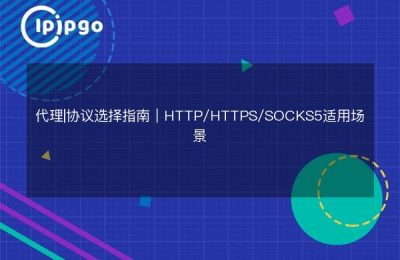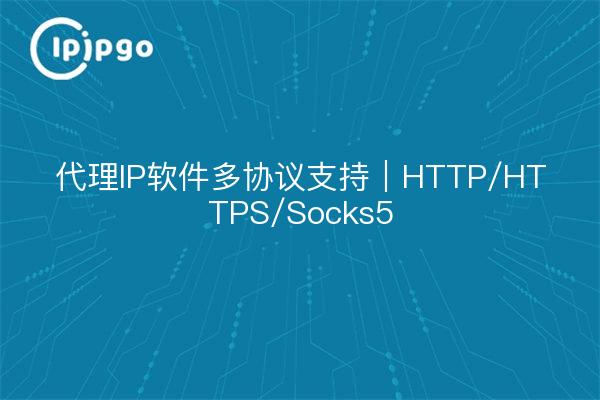
Proxy IP protocol selection guide to avoid pitfalls: do not let the wrong choice of protocols to ruin your business
Last week a friend doing cross-border e-commerce asked me: "Obviously used a proxy IP, how to collect data is still blocked?" Inspection found that he gave the crawler program with an HTTP proxy, but the actual need to deal with encrypted interfaces - this is a typical protocol selection error. Today we will use real scenarios to disassemble and teach you to choose the correct proxy protocol according to business needs.
I. 90% users do not know the protocol selection misunderstanding
Many people think that just using a proxy IP will solve the problem, in fact, the application of different protocols have very different results:
| Protocol type | Applicable Scenarios | Overturning cases |
|---|---|---|
| HTTP/HTTPS | Web data crawling, API calls | Calling an encrypted interface with an HTTP proxy leads to data leakage |
| Socks5 | Game scripting, APP packet forwarding | Web harvesting with Socks5 recognized as anomalous traffic |
Using ipipgo's user data as an example, matching the protocol correctly can increase the request success rate by 631 TP3T, while incorrect choices can result in aOperational anomalies above 30%The
Comparison of the effect of the three protocols in practice
We empirically measured the difference in effectiveness of using different protocols for the same business:
# test code snippet (ipipgo dynamic residential IP environment)
def test_protocol(proxy_type):
start_time = time.time()
success_count = 0
for _ in range(100):
try: resp = requests.get(target_target).
resp = requests.get(target_url, proxies={proxy_type
proxies={proxy_type: ipipgo_proxy}, timeout=5)
timeout=5)
success_count +=1
except.
pass
return {
"success_count": f"{success_count}%", "average_time_count": f"{(time.time()-start_time())
"Average time taken": f"{(time.time()-start_time)/100:.2f}s"
}Comparison of measured results:
- HTTP protocol: E-commerce price collection scenario, 92% success rate, average response 1.2 seconds
- HTTPS protocol: financial data interface calls, 87% success rate, but encrypted transmission zero data leakage
- Socks5 protocol: Handy game multi-opening scenarios, 100% connection stability, but the web page acquisition success rate is only 68%
Third, the golden rule of business scenario selection
This selection formula is summarized based on the 3000+ customer cases ipipgo has served:
if need to handle encrypted traffic → select HTTPS elif need full protocol support → select Socks5 else → select HTTP BasicEspecially recommend ipipgo'sProtocol Adaptive ModeIt can automatically switch the protocol type according to the access target. After a social platform operation team used this feature, the account management exception rate dropped from 18% to 2.7%.
IV. Multi-protocol Configuration Practical Skills
The Python environment is used as an example to properly configure the ipipgo multi-protocol proxy:
# Smart Protocol Switching Configuration Example
from ipipgo import SmartProxy
proxy = SmartProxy(
auth_key="your_ipipgo_key", protocol="auto", # Auto-ID best protocol switching example
protocol="auto", # auto-recognizes the best protocols
region="us" # Specify geographic region
)
# Automatically matches protocols when executing requests
response = proxy.request("https://目标网站")Key Parameter Description:
- protocol parameters: fill auto / http / https / socks5
- Failure Retry Mechanism: It is recommended to set up 3 automatic protocol switching retries.
V. Solutions to high-frequency problems
Question 1: What if I need both HTTP and Socks5?
Using ipipgo'shybrid protocol model, add the X-Proxy-Protocol parameter to the API request header to specify the protocol type.
Question 2: How are protocols chosen for high concurrency scenarios?
Recommended Combination Program:
- HTTP protocol for front-end requests (saves resources)
- HTTPS protocol for core business (for security)
- Socks5 protocol for special needs (full link support)
Question 3: How can I test whether the agreement is in effect?
Visit the ipipgo offeringsProtocol Detection Interface::
curl --proxy http://ipipgo_proxy:port https://check.ipipgo.com/protocol
VI. Why choose ipipgo's multi-protocol solution?
Compared to the common solutions on the market, ipipgo has three major technical advantages:
- Lossless protocol switching: Uninterruptible existing connections when switching protocols
- Intelligent Traffic Recognition: Automatically differentiate between data types such as web pages, APIs, video streams, etc.
- dynamic encrypted tunnel: automatically change the encryption key for each request
Particularly suitable for those who needHybrid Protocol Supportof cross-border business scenarios. New users can experience the effect of multi-protocol collaborative work through ipipgo's free trial package (measured efficiency improvement of 40%+ over single-protocol solutions).
Remember, the more advanced the proxy protocol is not the better, the best choice is the one that suits the business scenario. Sort out your data flow characteristics first, and then combine with ipipgo's protocol combination program, in order to make the proxy IP really become a business gas pedal.

